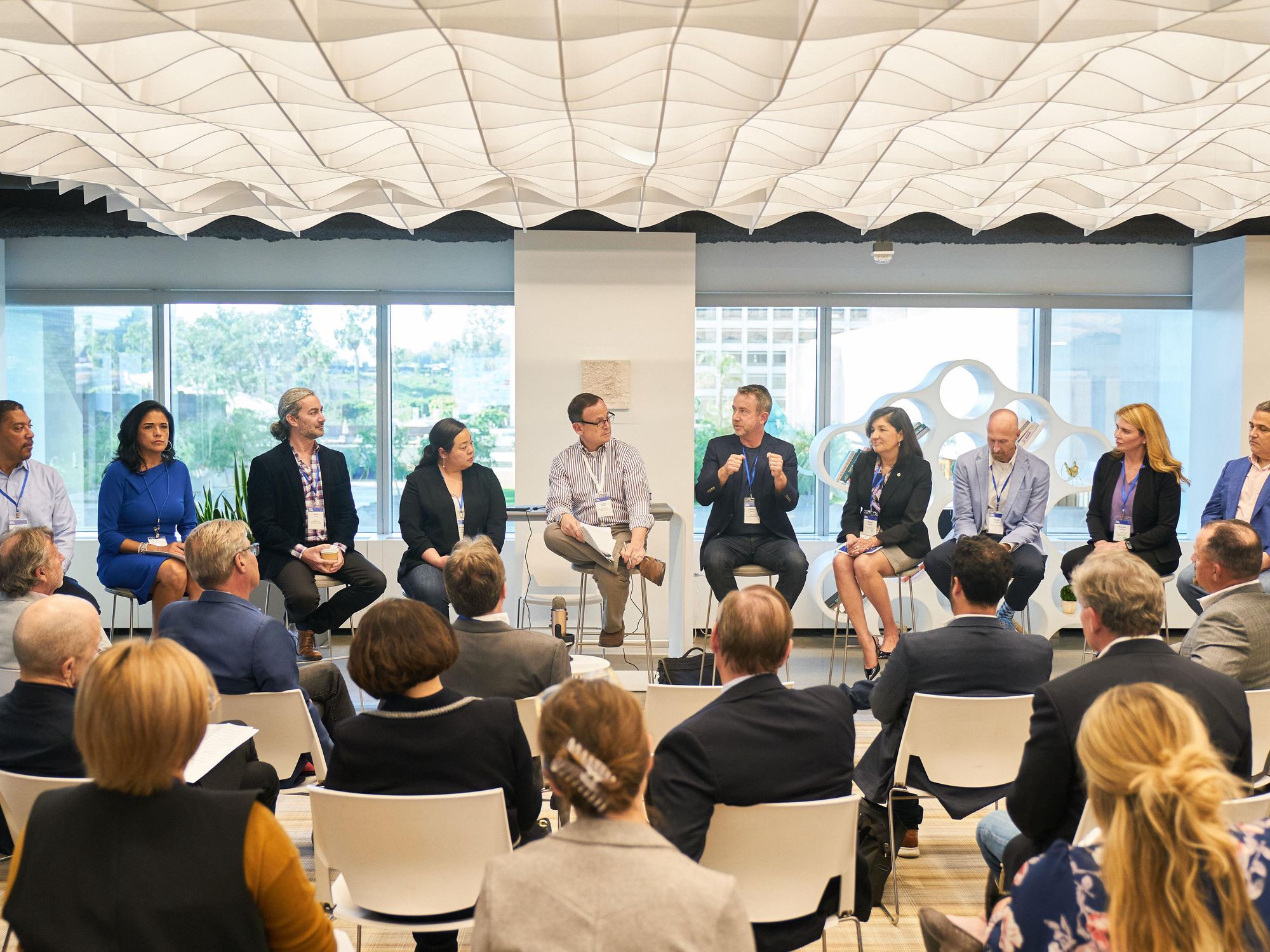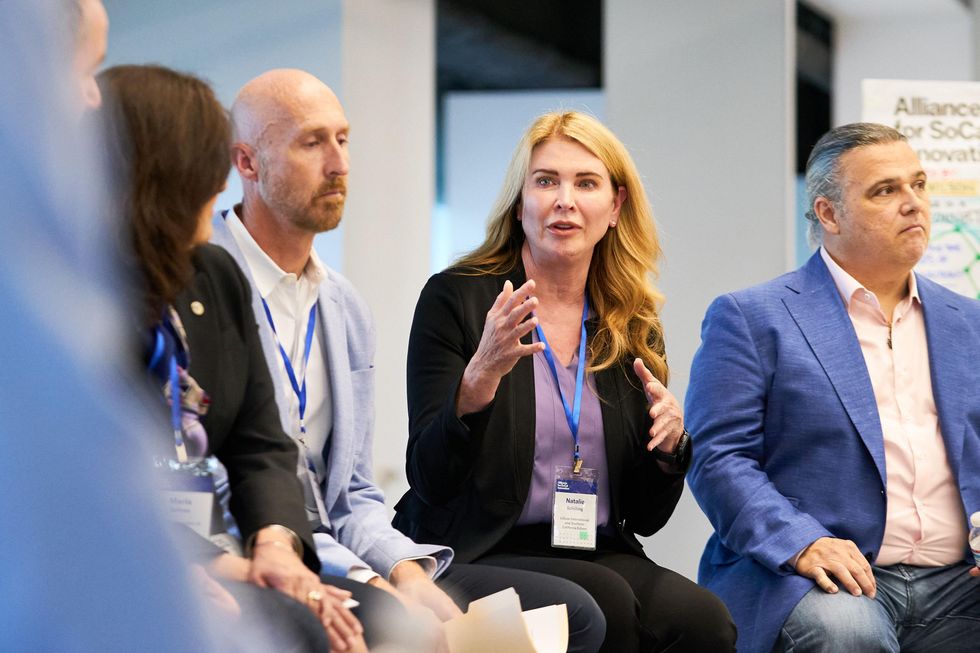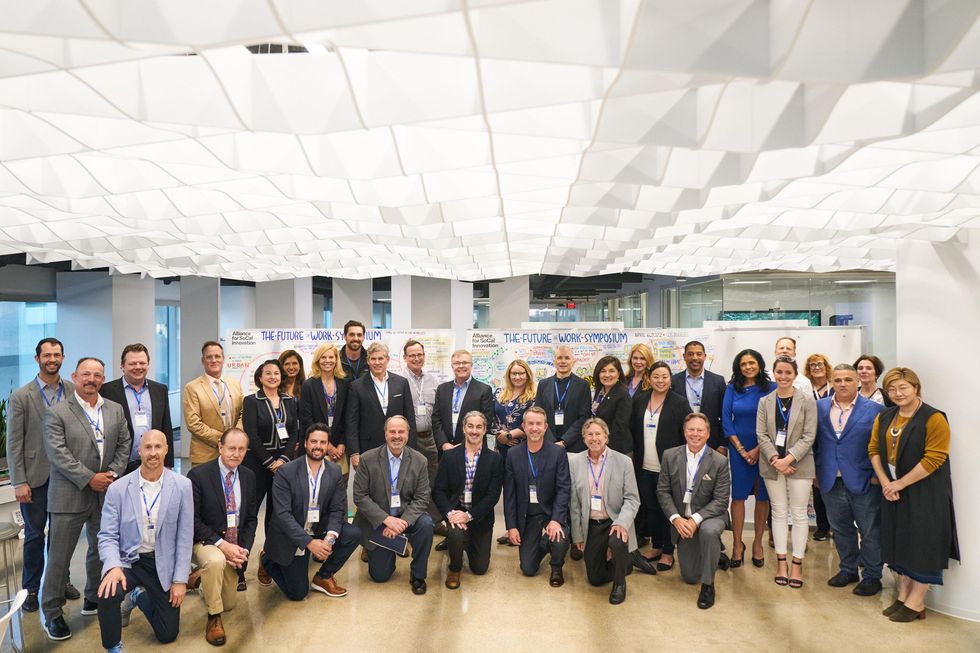Hybrid Work Is Here to Stay, LA Business Leaders Say
Decerry Donato is a reporter at dot.LA. Prior to that, she was an editorial fellow at the company. Decerry received her bachelor's degree in literary journalism from the University of California, Irvine. She continues to write stories to inform the community about issues or events that take place in the L.A. area. On the weekends, she can be found hiking in the Angeles National forest or sifting through racks at your local thrift store.

The last two years have seen many companies in Los Angeles—and the rest of the world—to pivot to a remote- or hybrid-work model that has quickly become the new normal. But with COVID-19 cases trending down and mandates easing up, employers are now reassessing what work should look like moving forward—and what it could mean for L.A.’s tech and business communities.
On Wednesday, local business leaders and stakeholders gathered in Downtown L.A. to discuss these very topics at “The Future of Work: People, Places and Spaces,” a symposium hosted by the Pasadena-based nonprofit Alliance for SoCal Innovation and the Downtown Center Business Improvement District (DCBID).
The event’s panelists include Slack senior vice president Brian Elliott, SoCal Edison senior vice president Natalie Schilling, L.A. Economic Development Corporation (LAEDC) vice president Jessica Ku Kim, Arup associate principal Katherine Perez and Geolab CEO Kian Gohar, among others.
Elliott kicked off the discussion by noting that even Slack—whose online workplace communication software became pervasive during the pandemic—found the initial shift to remote work as a shock to its system.

“Less than 3% of our workforce were remote [before the pandemic],” he said. “Most people assume that because we’re a technology company, we were already doing [remote work] all along.” One positive was in hiring, Elliott noted, as the new remote work model allowed Slack to more easily recruit and acquire talent from all around the world.
Gohar chimed in by pointing out how “the pandemic really made us reassess all our assumptions about how we live, how we work, how we socialize and how we learn.”
While lockdowns saw society realize the importance of “essential” workers in industries like food and health care, whose jobs could not be done at home, there were advantages gained by making many jobs remote. Workers could save time and money by eliminating their commutes, while carbon emissions also fell. Working parents with caregiving responsibilities were also generally provided more work-life balance and flexibility that they didn’t have pre-pandemic.
But with office occupancy rates slowly creeping back up, there are divides emerging between those more satisfied with the new normal and those who’d prefer a return to pre-pandemic ways.

Perez said she is seeing a divide at her design and engineering firm among executives—many of whom have families and want to continue working from home—and junior staff who seek the mentorship and collaboration that comes with being in the office.
On the flip side, Schilling said employers may risk losing out on talent if they don’t provide work-from-home options—particularly younger employees fresh out of college and low on savings, who may balk at paying today’s sky-high gas prices in order to commute.
“The biggest concern [at SoCal Edison] is connectedness, productivity and getting people to want to stay at our company,” Schilling added.
While the conversation around what “the future of work” will look like remains open for debate, most of the panelists found common ground on Kim’s observation that “one size does not fit all”—and the sentiment that what may work for one company in a post-pandemic world may not be the best for others.
- How Will Offices Change After Coronavirus? - dot.LA ›
- How the Pandemic Will Change Work - dot.LA ›
- Remote Work for Los Angeles City Workers May Be Permanent - dot ... ›
Decerry Donato is a reporter at dot.LA. Prior to that, she was an editorial fellow at the company. Decerry received her bachelor's degree in literary journalism from the University of California, Irvine. She continues to write stories to inform the community about issues or events that take place in the L.A. area. On the weekends, she can be found hiking in the Angeles National forest or sifting through racks at your local thrift store.



 Image Source: Revel
Image Source: Revel
